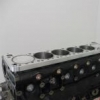Project Rb31dett. The Development Of My Open Deck Rb Engine And The Quest For More Torque!
Announcements
-
Similar Content
-
Latest Posts
-
By thatjawncrazy · Posted
interestingly enough, i found out the answer is yes. doing a flush did fix my recurring A/T light. it might have been because of the trans filter: but that doesn't really make sense to me. the fluid/filter was super dirty. would that increase the pressure in the lines and trigger an A/T light? does the car even have a way of detecting that? i have no idea. i've done 200+ miles after the flush and no A/T light. if my A/B solenoids went bad, i would think the light would've come on. shifts and drives way better now though...at 2k rpm instead of 2500...no hesitation and downshifts when i want it to. -
I vote go red. Only because I hate keeping gloss black clean. Was no worries helping out either! Glad you've survived the rain outs of QLD
-
I would again like too thank Matt for his help in me sourcing the detachable hard top for the little red car, without Matt's assistance in inspecting it and locking it down, I can guarantee it would have sold before I could get up to see it, and as that was the only available NC hardtop in Australia, I consider myself extremely lucky on multiple levels To say I'm more that happy would be an understatement And, it is 100% water tight, I drove through torrential rain coming back south, and by torrential, they type of rain that doing 40kph in a 110kph zone was a real thing, and even then, the standing water on the Hwy was deep enough to throw waves I'm also more than happy that the huge "BEASTS" that Matt calls dogs didn't eat me for lunch, I'm sure the sniffs and licks were more to "taste test" me, over being to friendly Now to work out what colour to get it painted, panel match, or gloss black........first world problems are real
-
Actually I might have figured out. Looks like there is a tab according to google images but it's hidden. Silly me.
-






Recommended Posts
Create an account or sign in to comment
You need to be a member in order to leave a comment
Create an account
Sign up for a new account in our community. It's easy!
Register a new accountSign in
Already have an account? Sign in here.
Sign In Now